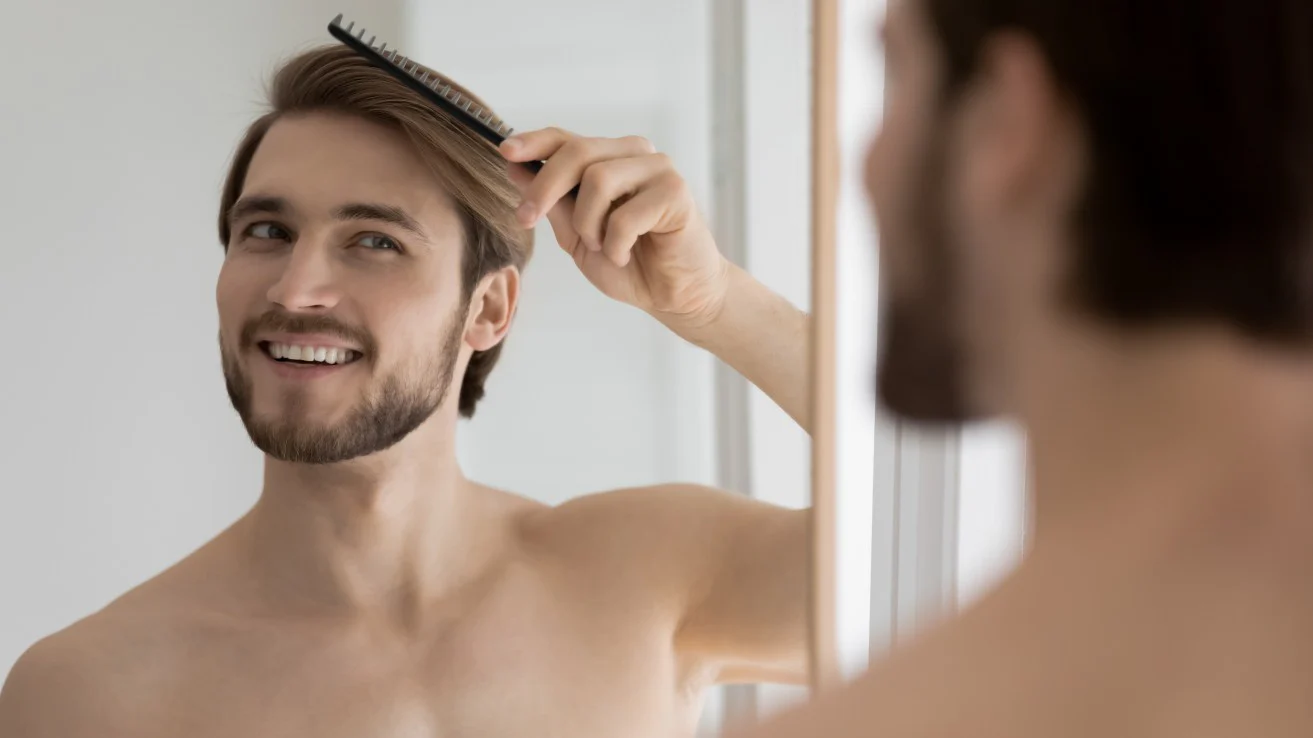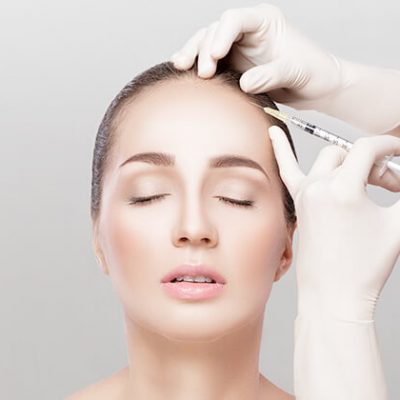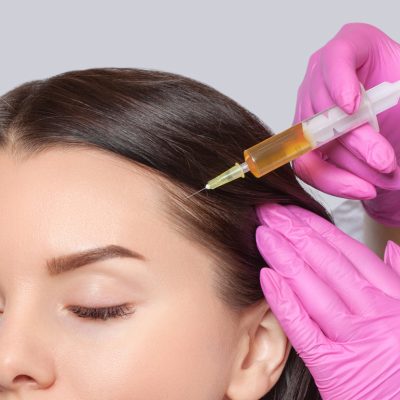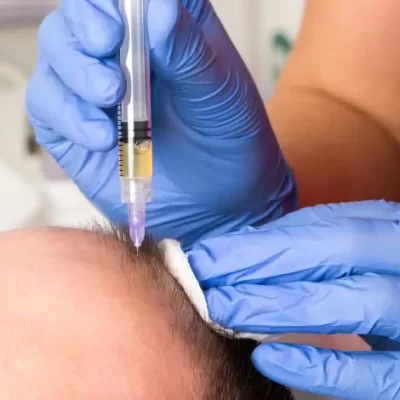In this article, we introduce you to 7 basic and precise hair care routines. Take care of your hair by following a hair care routines.
Table of Contents
Hair care routines
A hair care routines typically involves a combination of practices and products that are designed to promote healthy hair and prevent damage. Here are some common steps you can follow to create a basic hair care routines:
- Shampoo your hair regularly: Washing your hair with a mild shampoo helps keep your scalp and hair care routines. However, using too much shampoo or using harsh shampoos can strip your hair of natural oils, making it dry and prone to breakage. Aim to shampoo your hair no more than every other day, and choose a shampoo that is appropriate for your hair type.
- Condition your hair: Conditioner helps to moisturize and soften your hair, making it easier to manage. After shampooing, apply conditioner to the lengths and ends of your hair, avoiding your scalp. Leave the conditioner on for a few minutes before rinsing it out.
- Use a leave-in conditioner: A leave-in conditioner can help to provide extra moisture and protection for your hair. Apply it to clean, damp hair and leave it in without rinsing.
- Limit heat styling: Heat styling tools, such as flat irons and curling irons, can damage your hair if used too frequently. Try to limit your use of these tools, and use a heat protectant spray before styling.
- Protect your hair from sun damage: Exposure to the sun’s UV rays can damage your hair, causing it to become dry and brittle. To protect your hair, wear a hat or use a hair product that contains SPF.
- Trim your hair regularly: Regular haircuts can help to prevent split ends and breakage, keeping your hair looking healthy.
- Eat a healthy diet: Eating a balanced diet that includes plenty of protein, vitamins, and minerals can help to promote healthy hair growth.
Remember that everyone’s hair is different, so it’s important to find a routine that works for your specific hair type and needs.

Shampoo your hair regularly
Shampooing your hair regularly is important for maintaining good scalp health and keeping your hair clean. However, how often you shampoo your hair will depend on your hair type and lifestyle.
If you have oily hair, you may need to shampoo your hair every day or every other day to remove excess oil and prevent your hair from looking greasy. If you have dry hair, you may only need to shampoo once or twice a week to avoid stripping your hair of its natural oils.
If you have an active lifestyle, you may need to shampoo more frequently to remove sweat and dirt from your hair. On the other hand, if you have a more sedentary lifestyle, you may not need to shampoo as often.
It’s important to choose a shampoo that’s appropriate for your hair type and to avoid using too much product, which can lead to product buildup and make your hair look dull and lifeless. When shampooing, be gentle and avoid scrubbing too hard, as this can damage your hair and irritate your scalp. Finally, make sure to rinse your hair thoroughly to remove all shampoo residue.

Condition your hair
Conditioning your hair is an important part of any hair care routines, as it helps to moisturize and nourish your hair, making it more manageable and less prone to breakage. Here are some tips for conditioning your hair:
- Use a conditioner that’s appropriate for your hair type: If you have fine hair, you may want to use a lightweight conditioner that won’t weigh your hair down. If you have thick or curly hair, you may need a more intense conditioner to help tame frizz and add moisture.
- Apply conditioner from mid-length to the ends of your hair: Avoid applying conditioner to your scalp, as this can lead to buildup and make your hair look greasy. Instead, focus on applying conditioner to the lengths and ends of your hair, where it’s most needed.
- Leave the conditioner in for a few minutes: To allow the conditioner to penetrate your hair and work its magic, leave it in for a few minutes before rinsing it out.
- Rinse your hair thoroughly: Make sure to rinse your hair thoroughly to remove all conditioner residue, as leaving any product in your hair can weigh it down and make it look dull.
If you have particularly dry or damaged hair, you may want to consider using a deep conditioning treatment once a week to help repair and nourish your hair. These treatments typically require leaving the conditioner in your hair for a longer period of time, and may require the use of heat to help the product penetrate your hair more deeply.

Use a leave-in conditioner
Using a leave-in conditioner is a great way to provide your hair with extra moisture and nourishment, particularly if your hair is dry or damaged. Here are some tips for using a leave-in conditioner:
- Choose a leave-in conditioner that’s appropriate for your hair type: If you have fine hair, you may want to use a lightweight leave-in conditioner that won’t weigh your hair down. If you have thick or curly hair, you may need a more intense leave-in conditioner to help tame frizz and add moisture ( hair care routines ).
- Apply the leave-in conditioner to damp hair: After washing and conditioning your hair, gently squeeze out any excess water with a towel, leaving your hair damp but not soaking wet. Apply a small amount of leave-in conditioner to your hair, focusing on the lengths and ends.
- Comb your hair to distribute the product: Use a wide-tooth comb or your fingers to distribute the leave-in conditioner evenly throughout your hair ( hair care routines ).
- Style your hair as desired: Once you’ve applied the leave-in conditioner, you can style your hair as usual. Depending on your hair type and the product you’re using, you may be able to air-dry your hair, or you may need to use a blow dryer or other styling tools.
Remember to use leave-in conditioner sparingly, as using too much product can weigh your hair down and make it look greasy. Start with a small amount and add more if necessary. Additionally, if you have fine hair, you may want to avoid applying leave-in conditioner to your roots, as this can make your hair look flat and greasy.

Limit heat styling
Limiting heat styling is important for maintaining healthy hair, as excessive heat can damage your hair, making it dry, brittle, and prone to breakage. Here are some tips for reducing your heat styling:
- Air-dry your hair: Whenever possible, allow your hair to air-dry rather than using a blow dryer. This can help to minimize heat damage and protect your hair.
- Use a heat protectant: If you do use heat styling tools, such as flat irons or curling irons, make sure to apply a heat protectant spray or serum to your hair first. This can help to minimize damage and protect your hair from high temperatures ( hair care routines ).
- Limit your use of heat styling tools: Try to limit your use of heat styling tools to only when necessary, and avoid using them every day. Instead, experiment with different hairstyles that don’t require heat styling, such as braids or updos.
- Use low heat settings: When using a blow dryer or other heat styling tool, use the lowest heat setting possible that will still achieve the desired result. This can help to reduce heat damage and protect your hair.
- Don’t use heat styling tools on wet hair: Using heat styling tools on wet hair can cause even more damage, as wet hair is more vulnerable to breakage. Make sure your hair is completely dry before using any heat styling tools ( hair care routines ).
Remember that heat styling is just one of many factors that can affect the health of your hair. Eating a healthy diet, getting enough sleep, and avoiding harsh chemicals and treatments can all help to promote healthy hair growth and prevent damage.

Protect your hair from sun damage
Protecting your hair from sun damage is important, as exposure to UV rays can cause your hair to become dry, brittle, and prone to breakage. Here are some tips for protecting your hair from sun damage:
- Wear a hat: One of the easiest ways to protect your hair from the sun is to wear a hat, particularly if you’ll be spending an extended period of time outdoors. A wide-brimmed hat can provide shade for your face and scalp, as well as your hair ( hair care routines ) .
- Use a hair product with SPF: Just as you would apply sunscreen to your skin, you can also apply a hair product that contains SPF to your hair. Look for a leave-in conditioner or styling product that contains SPF, and apply it to your hair before heading outdoors ( hair care routines ).
- Avoid direct sunlight: If you’re spending time outdoors, try to avoid direct sunlight as much as possible. Sit under an umbrella or a shady tree to protect your hair from the sun’s rays ( hair care routines ).
- Rinse your hair after swimming: If you’ll be swimming in a pool or the ocean, make sure to rinse your hair thoroughly with fresh water after swimming. Chlorine and salt water can both be damaging to your hair, and rinsing your hair can help to remove these substances and prevent damage.
- Wear protective styles: Braids, buns, and other protective styles can help to shield your hair from the sun’s rays, particularly if you’ll be spending a lot of time outdoors.
Remember that protecting your hair from the sun is just one part of a comprehensive hair care routines. Eating a healthy diet, avoiding harsh chemicals, and limiting heat styling can all help to promote healthy hair growth and prevent damage.

Trim your hair regularly
Regularly trimming your hair can help keep it healthy and prevent split ends. How often you need to trim your hair will depend on the length of your hair and how quickly it grows, but a good rule of thumb is to get a trim every 6-8 weeks. This will help keep the ends of your hair looking neat and tidy, and prevent them from splitting and breaking off. It’s also a good idea to use a quality pair of hair scissors or visit a professional stylist for a trim, as using dull or improper tools can cause more damage to your hair.
Use a healthy diet for hair care routines
Eating a healthy and balanced diet is essential for maintaining healthy hair. Your hair needs a variety of nutrients, including protein, vitamins, and minerals, to grow strong and healthy. Here are some nutrients that you should include in your diet to promote healthy hair:
- Protein for hair care routines : Hair is made up of a protein called keratin, so it’s important to consume enough protein in your diet. Good sources of protein include lean meats, fish, eggs, nuts, and legumes.
- Iron for hair care routines : Iron is important for healthy hair growth, as it helps deliver oxygen to your hair follicles. Good sources of iron include red meat, chicken, fish, leafy greens, and fortified cereals.
- Biotin for hair care routines: Biotin is a B-vitamin that is important for healthy hair, skin, and nails. Good sources of biotin include eggs, nuts, and whole grains.
- Vitamin C for hair care routines: Vitamin C is important for collagen production, which is essential for healthy hair growth. Good sources of vitamin C include citrus fruits, berries, kiwi, and broccoli.
- Omega-3 fatty acids for hair care routines: Omega-3 fatty acids are important for healthy hair and can be found in fatty fish like salmon, sardines, and mackerel, as well as in walnuts and flaxseeds.
By including these nutrients in your diet, you can promote healthy hair growth and maintain strong, shiny hair.
Protein for hair care routines
Protein is an essential nutrient for healthy hair growth and can be incorporated into hair care routines in various ways. Hair is made up of a protein called keratin, so consuming enough protein in your diet is important for maintaining healthy hair. Additionally, using hair products that contain protein can help strengthen and repair damaged hair. Here are some ways to incorporate protein into your hair care routine:
- Protein treatments: Protein treatments are designed to strengthen and repair damaged hair. These treatments typically contain hydrolyzed proteins that can penetrate the hair shaft, helping to rebuild and strengthen the hair. Protein treatments can be done at home or at a salon.
- Protein-rich hair products: Look for shampoos, conditioners, and styling products that contain protein. These products can help strengthen hair and prevent breakage.
- Diet: Eating a diet rich in protein can help promote healthy hair growth. Good sources of protein include lean meats, fish, eggs, nuts, and legumes.
- Protein supplements: There are also protein supplements available that can help support healthy hair growth. Collagen supplements, for example, are a popular choice for promoting hair health.
It’s important to note that while protein is essential for healthy hair, too much protein can actually be damaging. Overloading your hair with protein can cause it to become brittle and break. It’s important to find the right balance of protein in your hair care routine to ensure healthy, strong hair.
Iron for hair care routines
Iron is an important nutrient for healthy hair growth and can be incorporated into hair care routines in various ways. Iron helps carry oxygen to the hair follicles, which is essential for healthy hair growth. Here are some ways to incorporate iron into your hair care routine:
- Diet: Eating a diet rich in iron can help promote healthy hair growth. Good sources of iron include red meat, chicken, fish, leafy greens, and fortified cereals.
- Iron supplements: If you are not getting enough iron from your diet, iron supplements can help ensure that you are meeting your daily recommended intake. However, it’s important to speak with your doctor before starting any new supplements.
- Blood tests: If you are experiencing hair loss or other hair-related issues, it may be a sign of an iron deficiency. A blood test can determine if you have an iron deficiency and help you take appropriate action.
It’s important to note that too much iron can also be damaging to the body, so it’s important to find the right balance of iron in your hair care routine. If you are unsure about how much iron you should be consuming, speak with your doctor or a registered dietitian.
Biotin for hair care routines
Biotin, also known as vitamin B7 or vitamin H, is an important nutrient for healthy hair growth and can be incorporated into hair care routines in various ways. Biotin helps produce the protein keratin, which makes up hair, skin, and nails. Here are some ways to incorporate biotin into your hair care routine:
- Diet: Eating a diet rich in biotin can help promote healthy hair growth. Good sources of biotin include eggs, nuts, whole grains, and leafy greens.
- Biotin supplements: If you are not getting enough biotin from your diet, biotin supplements can help ensure that you are meeting your daily recommended intake. However, it’s important to speak with your doctor before starting any new supplements.
- Biotin-rich hair products: Look for shampoos, conditioners, and other hair products that contain biotin. These products can help strengthen hair and promote healthy growth.
It’s important to note that while biotin is important for healthy hair growth, taking excessive amounts of biotin supplements can have negative effects on the body. It’s important to follow the recommended dosage and speak with your doctor before starting any new supplements.
Vitamin C for hair care routines
Vitamin C is an important nutrient for healthy hair growth and can be incorporated into hair care routines in various ways. Vitamin C helps produce collagen, which is a protein that is essential for healthy hair growth. Here are some ways to incorporate vitamin C into your hair care routine:
- Diet: Eating a diet rich in vitamin C can help promote healthy hair growth. Good sources of vitamin C include citrus fruits, berries, kiwi, broccoli, and bell peppers.
- Vitamin C supplements: If you are not getting enough vitamin C from your diet, vitamin C supplements can help ensure that you are meeting your daily recommended intake. However, it’s important to speak with your doctor before starting any new supplements.
- Vitamin C-rich hair products: Look for shampoos, conditioners, and other hair products that contain vitamin C. These products can help strengthen hair and promote healthy growth.
- DIY hair treatments: You can create your own DIY hair treatments using vitamin C-rich ingredients like lemon juice or orange juice. These treatments can help remove buildup from the scalp and promote healthy hair growth.
It’s important to note that while vitamin C is important for healthy hair growth, excessive amounts of vitamin C can have negative effects on the body. It’s important to follow the recommended dosage and speak with your doctor before starting any new supplements.
Omega-3 fatty acids for hair care routines
Omega-3 fatty acids are important for healthy hair growth and can be incorporated into hair care routines in various ways. Omega-3s help nourish hair follicles and promote healthy hair growth. Here are some ways to incorporate omega-3s into your hair care routine:
- Diet: Eating a diet rich in omega-3 fatty acids can help promote healthy hair growth. Good sources of omega-3s include fatty fish like salmon, sardines, and mackerel, as well as walnuts and flaxseeds.
- Omega-3 supplements: If you are not getting enough omega-3s from your diet, omega-3 supplements can help ensure that you are meeting your daily recommended intake. However, it’s important to speak with your doctor before starting any new supplements.
- Omega-3-rich hair products: Look for shampoos, conditioners, and other hair products that contain omega-3s. These products can help nourish hair follicles and promote healthy growth.
- DIY hair treatments: You can create your own DIY hair treatments using omega-3-rich ingredients like avocado or coconut oil. These treatments can help nourish and hydrate hair, promoting healthy growth.
It’s important to note that while omega-3s are important for healthy hair growth, excessive amounts of omega-3 supplements can have negative effects on the body. It’s important to follow the recommended dosage and speak with your doctor before starting any new supplements.
Hair Clinic Dubai
More Posts






